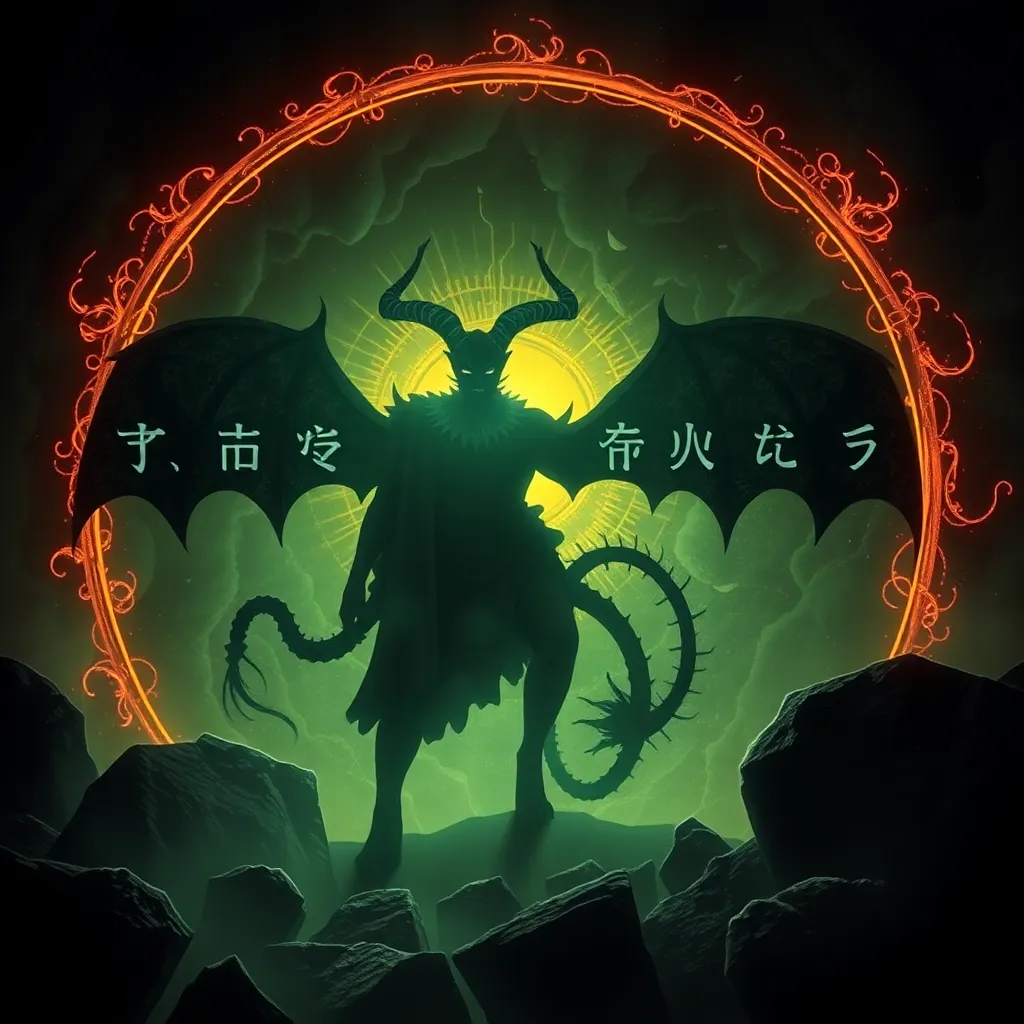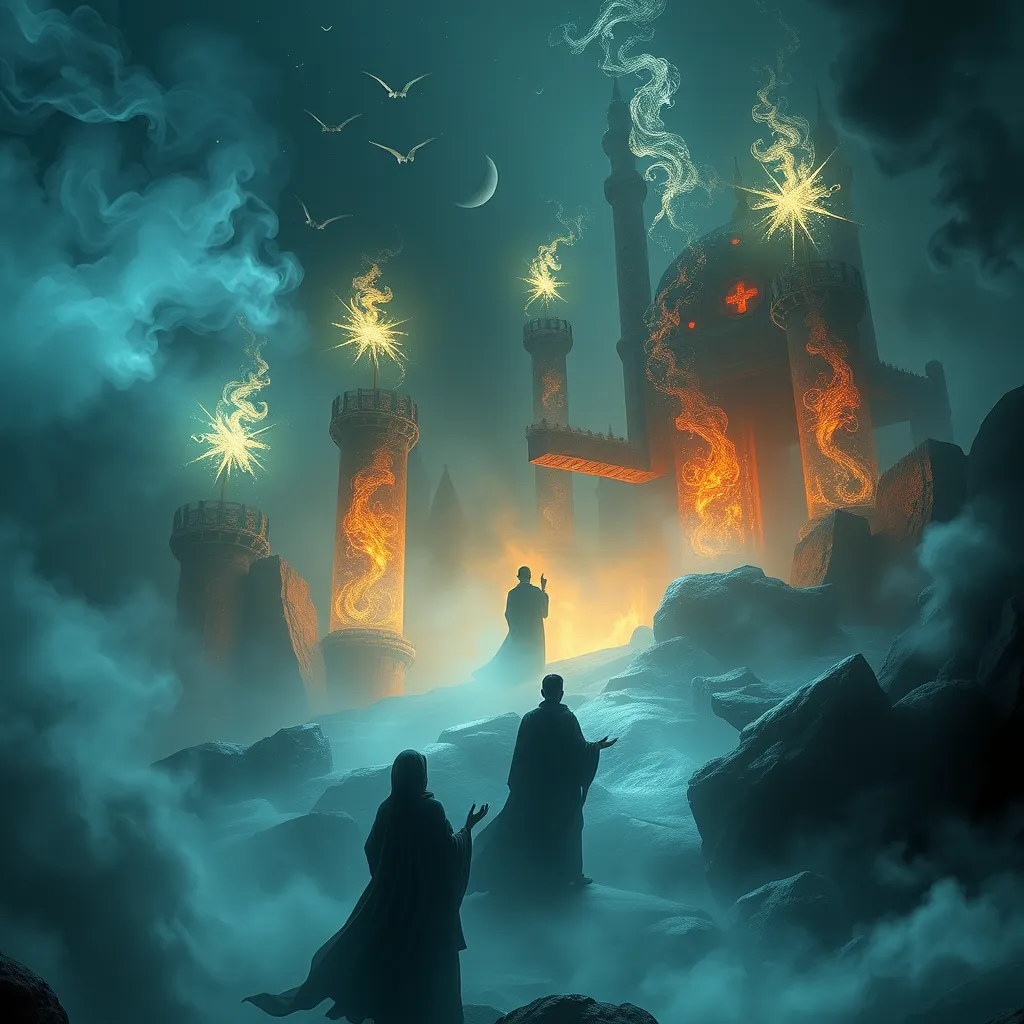The Empusa’s Shadow in Roman Poetry: Virgil, Ovid, and the Demon’s Influence
I. Introduction
The Empusa, a fascinating figure from ancient mythology, embodies the interplay between fear and desire, seduction and terror. Originating in Greek folklore, this demon is often depicted as a shape-shifting entity that preys on the young and the innocent. Its mythological origins can be traced back to the writings of Herodotus and later adapted by various Greek and Roman authors. In Roman poetry, demons like Empusa serve as pivotal motifs that explore deeper human emotions and societal fears.
This article aims to delve into the significance of demons in Roman poetry, particularly focusing on the influence of Empusa in the works of two of the most prominent poets of the time: Virgil and Ovid. By examining their portrayals of this demon, we can uncover the rich layers of meaning and cultural context surrounding Empusa’s character.
II. The Myth of Empusa: Origins and Characteristics
The historical context of Empusa dates back to ancient mythology where she is often characterized as a seductive and dangerous being. Traditionally, Empusa is described as a daughter of Hecate, the goddess of magic and witchcraft, and is known for her ability to change shape. This shape-shifting ability allows her to lure victims, often appearing as a beautiful woman before revealing her true, monstrous form.
Empusa’s traits and abilities are numerous, including her vampiric tendencies—she is said to drain the life force of her victims. In Roman culture, demons like Empusa not only served as cautionary tales but also reflected societal anxieties regarding sexuality, power, and the supernatural. The figure of Empusa thus plays a significant role in the context of Roman literature, embodying the fears of the unknown and the vulnerabilities of human desire.
III. Virgil’s Interactions with the Supernatural
Virgil, one of the foremost poets of ancient Rome, is known for his epic work, the “Aeneid,” among other writings. His poetry often grapples with themes of fate, divine intervention, and the supernatural. The presence of demons and otherworldly beings in his writings enriches the narrative and serves to highlight human experiences and emotions.
In the “Aeneid,” the motif of Empusa can be seen indirectly through the portrayal of various supernatural entities that influence the protagonist, Aeneas. While Empusa may not be explicitly named, her essence can be felt in the form of dangerous temptations and deceptive appearances that Aeneas encounters, particularly in the underworld and in his interactions with the goddess Dido.
When comparing Empusa with other supernatural beings in Virgil’s poetry, it becomes evident that he often uses these figures to symbolize internal and external conflicts. For instance, the Furies and other avenging spirits present a stark contrast to Empusa’s seductive allure, emphasizing different aspects of fear and retribution in human experience.
IV. Ovid’s Use of Demonic Figures
Ovid, known for his narrative style and creativity, presents a different approach to demonic figures in his works. His major work, “Metamorphoses,” is a sprawling narrative that showcases transformations and the fluidity of identity. Ovid’s stylistic approach often blends humor, irony, and tragedy, allowing for a multifaceted exploration of characters, including demons.
Empusa’s presence in “Metamorphoses” is more pronounced than in Virgil’s works. Ovid utilizes her character to explore themes of love, lust, and betrayal, often highlighting the darker sides of desire. In several stories, female demons, including Empusa, are depicted as embodiments of seduction, reflecting the complexities of female power and its repercussions in a patriarchal society.
Ovid’s portrayal of female demons carries significant implications, as he uses their narratives to comment on broader social issues, including gender dynamics and the nature of transformation. The duality of these figures—both alluring and dangerous—mirrors the societal tensions surrounding femininity and sexuality in Roman culture.
V. Thematic Connections: Fear, Desire, and Transformation
Both Virgil and Ovid explore common themes related to Empusa, particularly the interplay of fear and desire. In their works, the demon often embodies the tension between attraction and the potential for harm. This duality is crucial in understanding the psychological and emotional landscapes of their characters.
- Fear: Empusa evokes fear not just through her monstrous form but also through the existential dread she represents—fear of the unknown, fear of losing control over one’s desires.
- Desire: Conversely, her seductive nature speaks to the allure of the forbidden, the complexities of attraction that can lead to one’s downfall.
- Transformation: Transformation is a central theme in both poets’ works, where characters often undergo profound changes, reflecting their inner struggles and the influence of supernatural forces.
The significance of transformation in the context of the Empusa myth cannot be overstated. It serves as a reminder of the fluidity of identity and the consequences of succumbing to darker impulses.
VI. The Influence of Greek Literature on Roman Interpretations
To fully appreciate the Roman interpretations of Empusa, one must consider the influence of Greek literature. The Greek depictions of Empusa and similar figures often served as archetypes of both terror and seduction. Roman poets like Virgil and Ovid adapted these motifs, infusing them with their own cultural perspectives.
Greek tragedy and comedy significantly shaped the narratives found in Virgil and Ovid’s works. The tragic elements of fate and doom, as well as comic interpretations of desire and deceit, are themes that resonate through their poetry. The Roman context, however, reshapes the understanding of Empusa, emphasizing moral lessons and societal critiques.
VII. Critical Reception and Legacy of Empusa in Roman Poetry
The historical perspectives on the reception of Virgil and Ovid’s works reveal how their portrayals of Empusa have evolved over time. In antiquity, these poets were celebrated for their insights into human nature and the supernatural, with figures like Empusa serving as focal points for discussion.
Modern interpretations of Empusa in contemporary literature often reflect ongoing themes of empowerment and the critique of societal norms. As scholars continue to explore the intersections of mythology and literature, the legacy of Empusa remains relevant, prompting discussions on gender, power, and identity.
VIII. Conclusion
In summary, the exploration of Empusa’s influence in the works of Virgil and Ovid reveals a rich tapestry of meaning that intertwines fear, desire, and transformation. The demon’s shadow looms large in Roman poetry, prompting readers to reflect on the complexities of human experience and the supernatural.
Ultimately, the broader implications of demonology in literature extend beyond ancient texts. The significance of Empusa’s character serves as a reminder of the enduring nature of myth and its capacity to illuminate the darkest corners of human existence.
As we reflect on the legacy of Empusa in the canon of Roman poetry, it becomes clear that her influence transcends time, inviting ongoing exploration and interpretation in the realms of both literature and culture.



